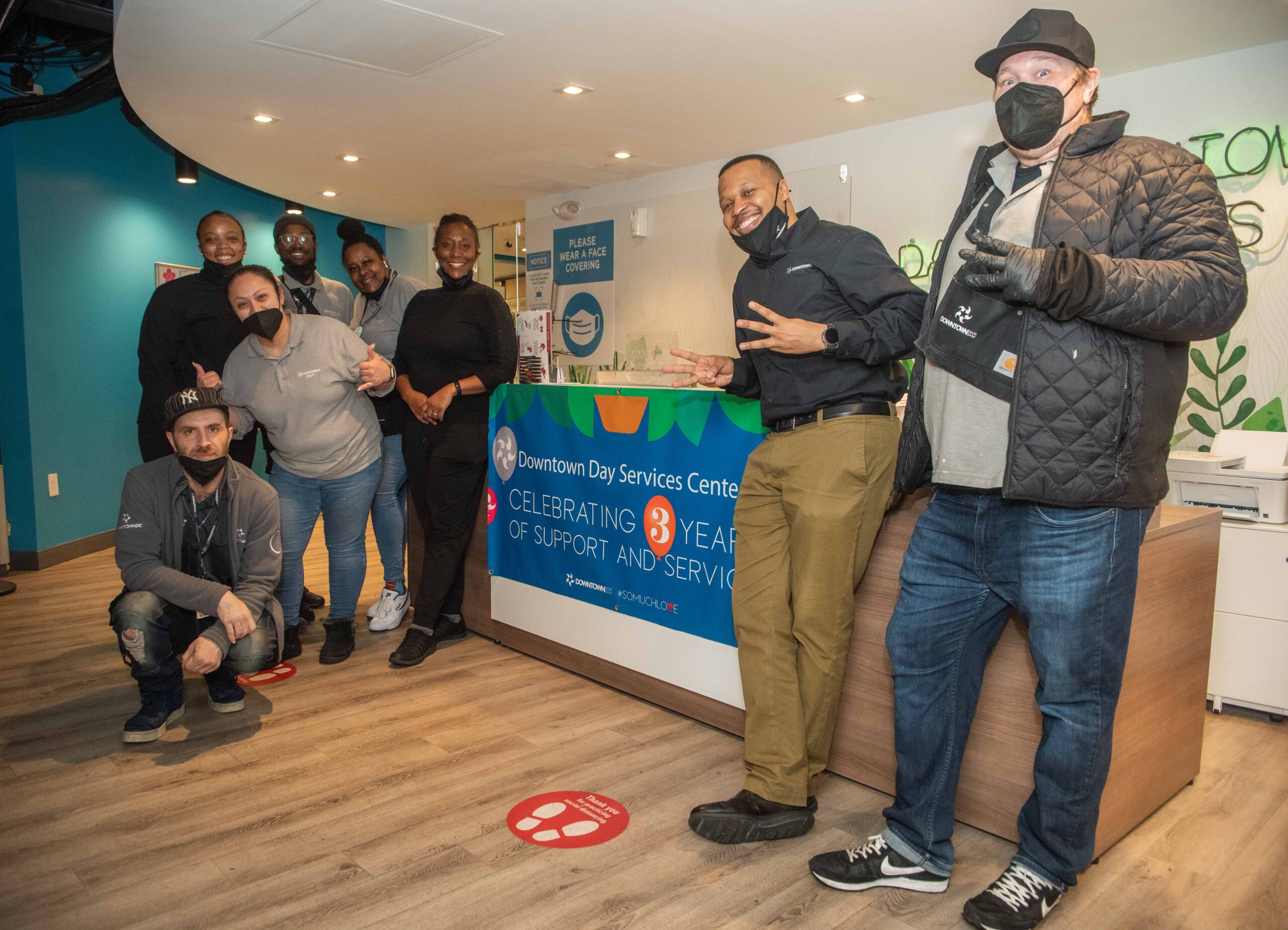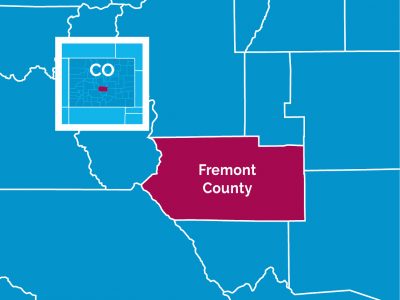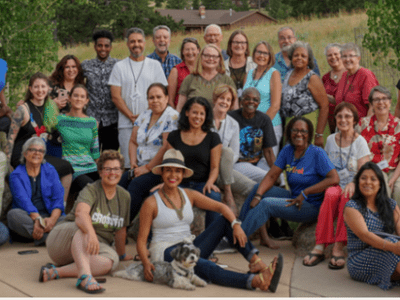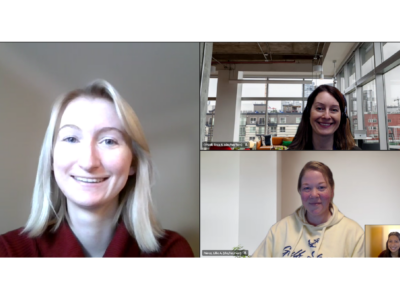Under the best of circumstances, going to the DMV isn’t an experience you probably look forward to, or expect to be quick or easy.
Now imagine you also had to locate your birth certificate, find health care services, and meet with a social worker — and you’re experiencing homelessness. Even if you lived in a place like Washington, D.C. with its “no wrong door” approach, this wouldn’t be a simple task.
“Individuals experiencing homelessness have typically had to run all over the city to get their needs met,“ explained Christy Respress, Executive Director of Pathways to Housing D.C. “All while trying to figure out: where do I eat? How do I take a shower? How do I do my laundry?”
That’s why the Downtown Day Services Center, aptly called “the Center,” was created. An initiative of the DowntownDC Business Improvement District with funding from the D.C. Department of Human Services, the Center is a solutions-oriented organization that seeks to end chronic homelessness in D.C. Open every weekday for walk-ins, it can host up to 200 people per day, offering services like meals, showers, laundry, computer access, health care, and vital records.
And yes, the Department of Motor Vehicles.
Leaders at the Center collaborated with local government to bring the representatives from the DMV to their convenient location, giving people navigating complex challenges easier access to critical documents and identification, which are often a necessary first step on the path to housing.
Funding and operating the Center represents just one of the ways that the business improvement district is supporting the community’s efforts to end homelessness, which also includes linking into a system of support and outreach, volunteering, and ensuring sufficient time and systemic investments.
“Having government partners who understand how critical it is to listen to those experiencing homelessness, rather than assuming what services they might benefit from, serves as an important model for other cities,” Respress said.
Creating a dignified, welcoming, respectful place
Encompassing a 138-block area of approximately 520 properties, the DowntownDC Business Improvement District has been pivotal to the development of the Center, which opened its current location on New York Avenue in 2019.
“Together, as a community, we were able to create a real one-stop center in the truest sense, one that is considered not just a model for our own city, but for the country.”
Christy respress
In 2015, the D.C. Department of Human Services put out a call for proposals for a comprehensive drop-in center located downtown, and in a show of their commitment to ending homelessness in their district, the Downtown BID applied for it and won the grant.
With their business acumen, the BID operates the Center with support from the D.C. Department of Human Services. Pathways to Housing DC is the contractor responsible for the service delivery, case management, and peer support services at the Center, focusing on helping people exit homelessness and develop a housing plan.
“The Center and, in turn the individuals who come there, have truly benefited from the complementary strengths, skills, and expertise from each of the partners,” Respress said.
The partners adopted a user-centered approach when crafting the plan for the Center to construct a low-barrier, Housing-First facility that allowed people experiencing homelessness to have what Respress called “a dignified, respectful, welcoming place to be inside.”
And that’s what they designed. The Center is a bright and colorful space, emphasizing natural elements, complete with vibrant cerulean walls and plants suspended across the entire ceiling of one room.
“Together, as a community, we were able to create a real one-stop center in the truest sense, one that is considered not just a model for our own city, but for the country,” Respress said.

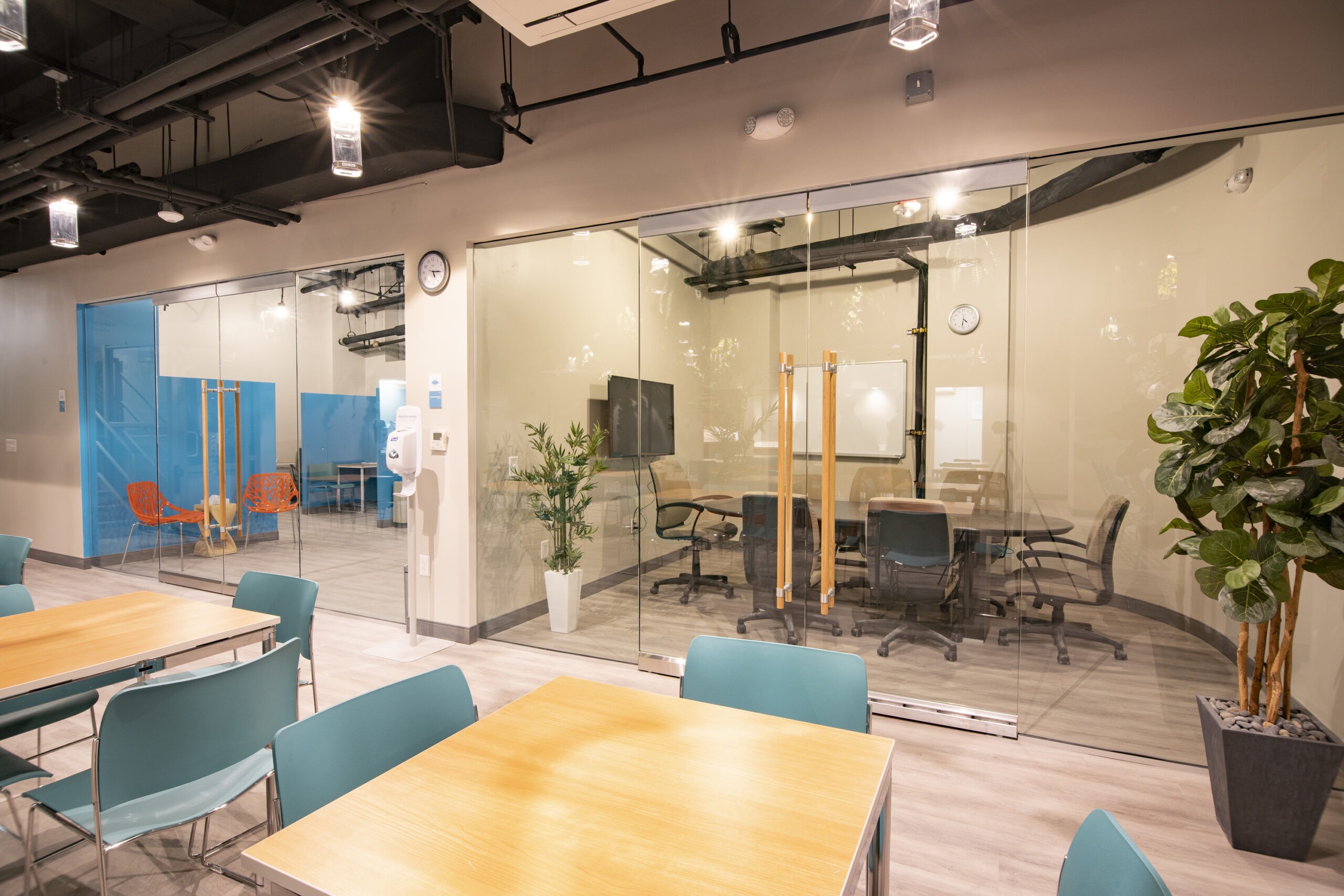
Supporting systemic change from the Center
From its earliest iteration, the Downtown Day Services Center has maintained the goal of reducing and ending chronic homelessness in D.C.
Linda Kaufman, who previously worked at Community Solutions, has served as DowntownDC BID’s Director of Homeless Services and was the former executive director of Pathways to Housing DC. She has been instrumental in the development and growth of the Center and its smaller precursor that opened in 2005. When mapping out the original design, her team identified what services people needed to be able to exit homelessness. They recognized that if there was a single location where people could connect to these services, “there was a chance that we could make a difference in the number of people who are experiencing homeless in the Downtown Business Improvement District.”
According to Respress, the vast majority of people who come to the Center request and need housing, and the staff strives to end their homelessness as quickly as possible.
“And for others who are not maybe ready to take that step, which is a smaller group, we make sure that they have all the resources they need in the meantime — building those relationships and continuing the conversation,” she said. “We never give up on anyone.”

“At the Center, you can go from one program to another…with the ultimate goal to get housing, and to be able to sustain yourself once you’re housed.”
— Debra Kilpatrick Byrd
Debra Kilpatrick Byrd serves as the Director of Homeless Services at the Center, which she sees as an integral player in enacting systemic change for people experiencing homelessness in Washington, D.C. The wraparound services available to anyone who visits are all intended to set up each person for success and long-term sustainability.
“At the Center, you can go from one program to another…with the ultimate goal to get housing, and to be able to sustain yourself once you’re housed,” Kilpatrick Byrd said.
To further foster that sustainability, the Center hosts representatives from the Department of Employment Services who match people to available jobs — and even offers employment at the Center itself. Similarly, Pathways to HousingDC also employs people with lived expertise of homelessness, drawing on their valuable knowledge to inform their work.
“It’s really important to invite people with lived experience and expertise to that same table so that it can really have a human face,” explained Monica Harrington, Director of Institutional Advancement. “We at Pathways have people with lived experience as part of our workforce, and they are essential to our successes.”
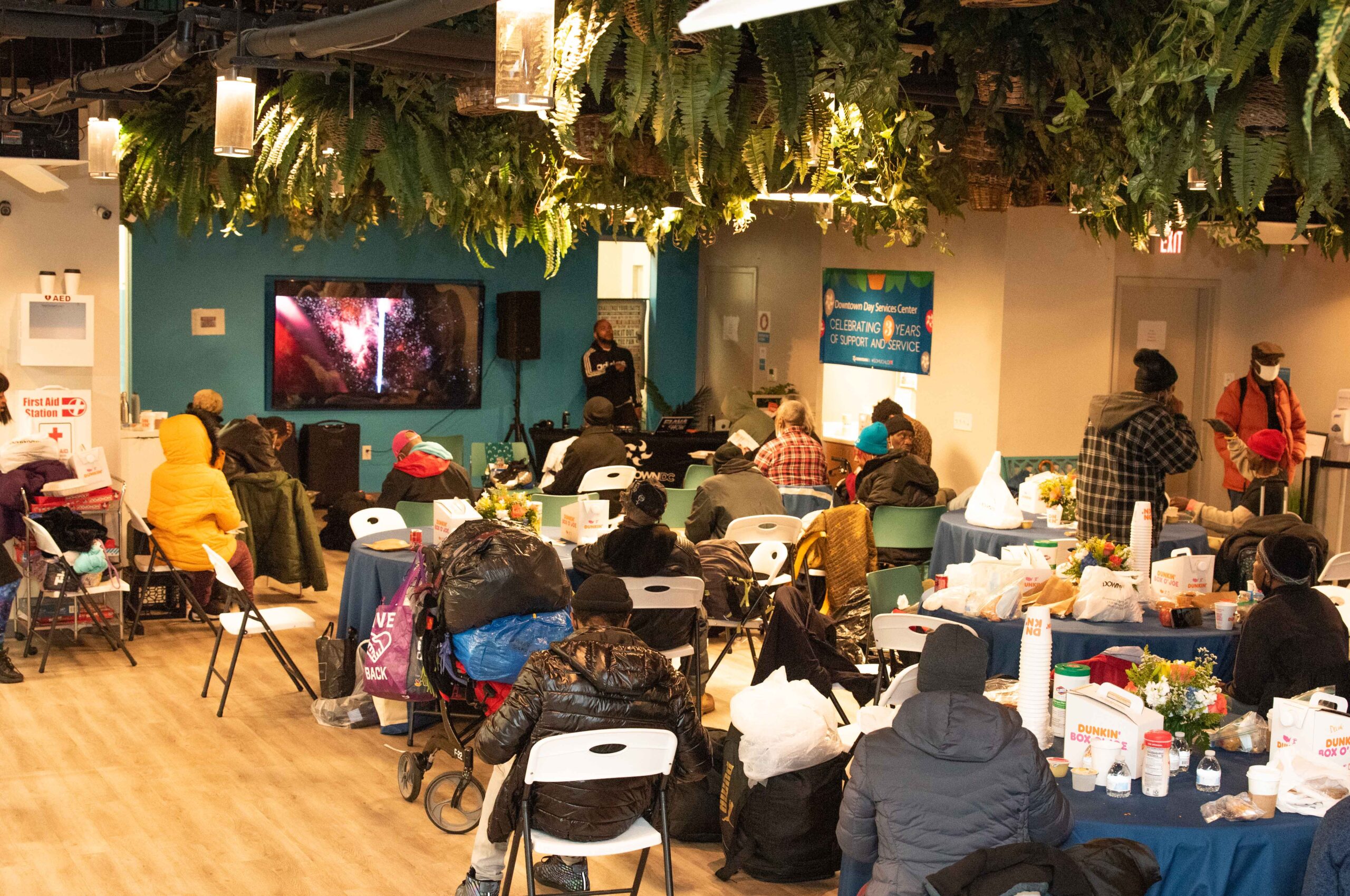
Influencing the broader community
The dynamic partnership between the BID and Pathways has also been influential in changing the system of care. For clients who visit the Center in search of housing, their primary caseworker will be located there. A street outreach team, jointly funded by the DowntownDC BID and neighboring Golden Triangle BID, can then turn its attention toward engaging people experiencing homelessness who have not come into the Center.
The existence of the outreach team has bolstered efforts to decriminalize homelessness in the area by giving businesses and property managers a new set of resources to draw upon.
By calling a central number, businesses can dispatch trained outreach workers to urgent situations, where they can offer help and services, with the hope of helping people ultimately exit homelessness.
“When someone has a concern and they’re not sure how to help someone, we’d much rather them call us than call the police, which was their only alternative for many years. In our experience, most people are grateful that we are involved.. They typically are very relieved to have someone to call other than the police,” Respress said.
Proactively communicating with the business community has also been essential. Kilpatrick Byrd’s team at the Center sends out a monthly community update to all business owners in the BID to keep them involved and informed.
“We ask if anyone wants to volunteer with us. And we ask that, if they are concerned with any individuals who are homeless, to please share our information with those individuals,” Kilpatrick Byrd explained.
Additionally, the Center has led ongoing property management training to teach when street outreach workers should be called, or when it should be a mental health crisis team — or when the police do need to be involved.
“We are constantly working with the community to make sure that all neighbors, including people experiencing homelessness, understand each other’s rights and responsibilities,” Respress said.
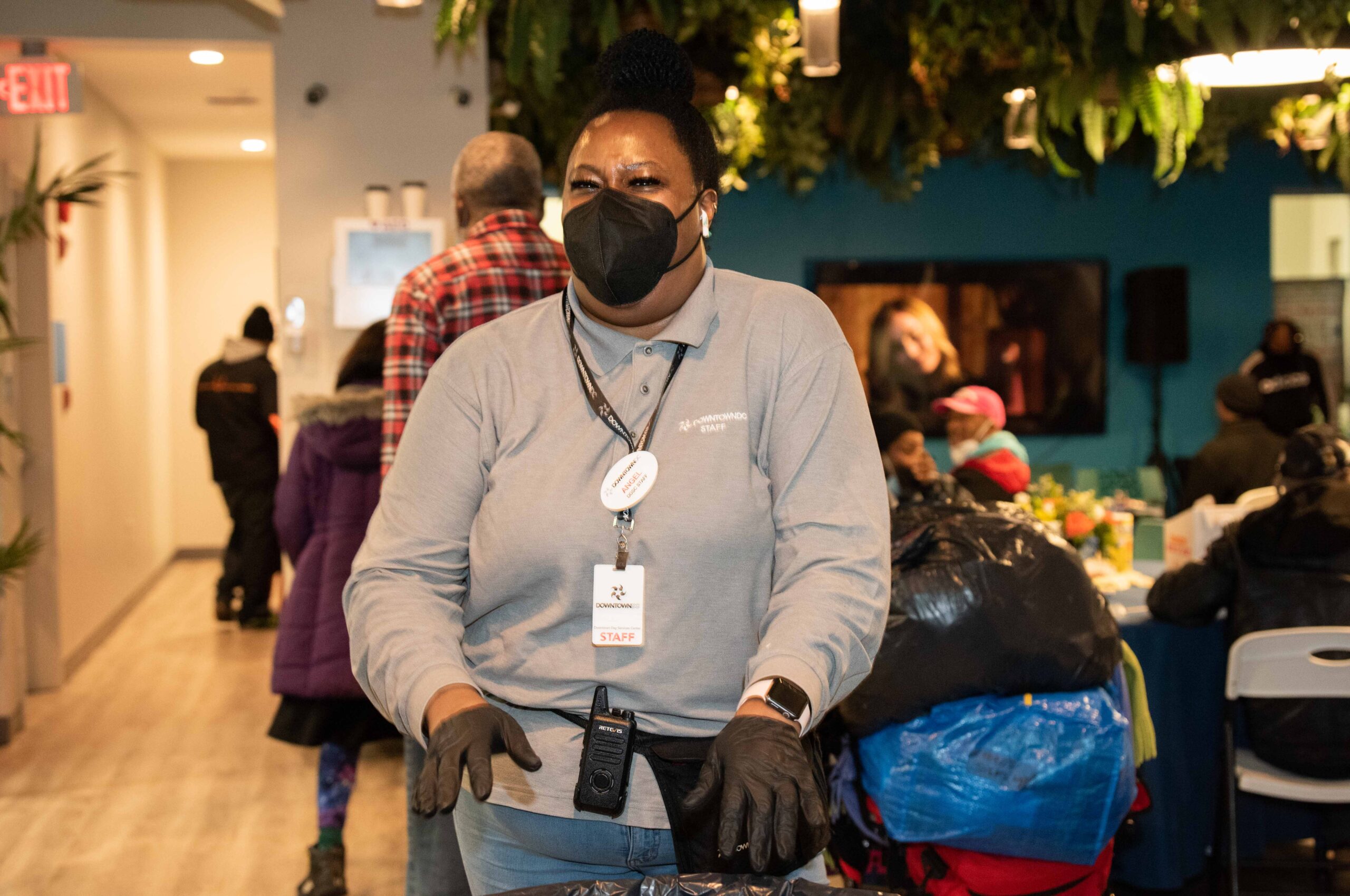
The braiding together of relationships
Through determined leadership and tangible commitment, the Downtown Day Services Center has been able to improve the lives of D.C. residents and businesses by leaning heavily on cross-sector collaboration, or what Respress referred to as “the braiding together of these relationships.”
One part of that braid has been the local faith community. Like many churches, The New York Avenue Presbyterian Church was searching for a way for their own homeless ministries to have a larger impact even without being part of the larger homeless response system.
“Churches are really so eager to get better plugged into the greater system and work directly with professional social workers and mental health workers who are connected to local nonprofit organizations like Pathways,” Respress said.
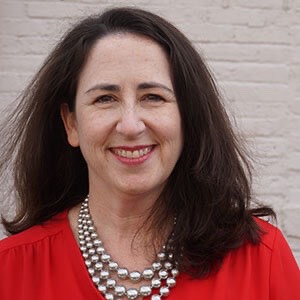
“We know in our sector that we cannot end homeless services through nonprofits alone or the government alone. It takes the businesses, faith communities, nonprofits, and for-profits all working together.”
— Christy Respress
But what they can supply, she noted, is a commitment to social justice, willing volunteers — and physical space. As such, the Downtown Day Services Center has called the basement of The New York Avenue Presbyterian Church its home since February 2019.
“We know in our sector that we cannot end homeless services through nonprofits alone or the government alone. It takes the businesses, faith communities, nonprofits, and for-profits all working together,” Respress said. “And I think the Center is really just a fantastic example of how that works practically speaking.”
Janice Kaplan, a communications consultant for PathwaysDC, encourages communities to be open to new and creative solutions. “It would be easy to make assumptions about how things have been in the past and base how we’re operating on those assumptions. Like thinking that the DMV is never going to have a presence in a downtown day services center — and yet here they are.”
In addition to fostering these crucial partnerships, the DowntownDC Business Improvement District has invested time and dedicated resources, prioritizing ending homelessness in both their budget and strategic plans. Respress challenges other business leaders and community partners to do the same — and to recognize that many others may share your goal.
“The vast majority of people that we work with, including downtown business owners, don’t want people sleeping on the street,” Respress said. “Not because they think it’s ‘bad for business,’ but because they’re human beings. We want the same things, which is an end to homelessness.”
